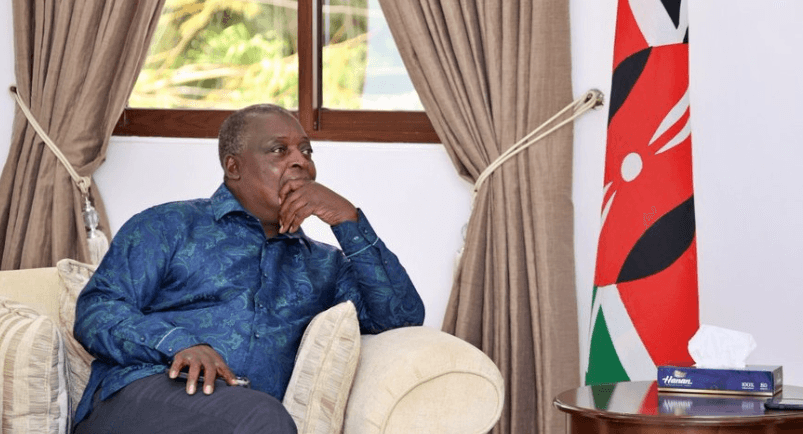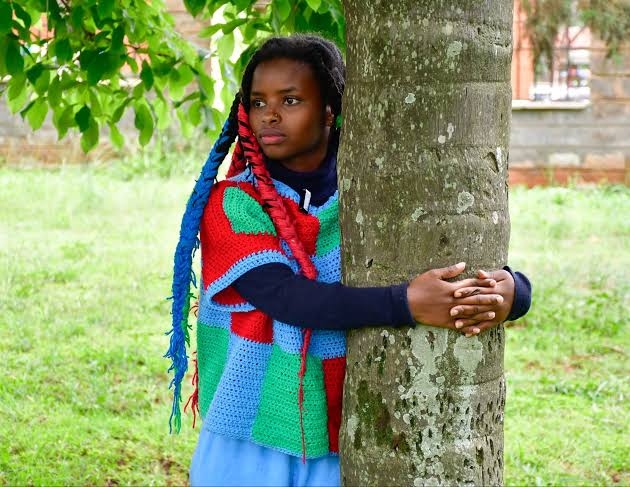Kenya has religiously taken part in global climate talks even as weather extremes such as floods, drought and rising lakes hit the nation affecting millions of people.
But the talks over who should take responsibility for these impacts of climate change have often landed African countries with a raw deal.
This happens even as the negative impacts of climate change become more intense, bringing more misery and pain.
Africa is not a significant source of greenhouse gas emissions, as the continent accounts for only 2–3 per cent of the world’s carbon dioxide emissions from energy and industrial sources.
In contrast, the top seven emitters of greenhouse gases are China, the EU27, India, Indonesia, Brazil, the Russian Federation and the United States of America.
These countries together with the international transport accounted for 55 per cent of global greenhouse gas emissions in 2020.
Collectively, G20 members are responsible for 75 per cent of global greenhouse gas emissions.
Africa is however most vulnerable to the impacts of climate change.
Already experiencing temperature increases of approximately 0.7°C over much of the continent, and with predictions that the temperatures will rise further, Africa is facing a wide range of impacts including increased drought and floods.
Experts say climate change in Africa will in the near future contribute to decreases in food production, floods and inundation of its coastal zones and deltas, spread of waterborne diseases and risk of malaria, and changes in natural ecosystems and loss of biodiversity.
Greenhouse gases have kept the Earth's climate habitable for humans and millions of other species by trapping heat from the sun.
However, these gases are now out of balance and threaten to change drastically.
Atmospheric levels of carbon dioxide—the most dangerous and prevalent greenhouse gas—are at the highest levels ever recorded.
Greenhouse gas levels are so high primarily because humans have released them into the air by burning fossil fuels.
The gases absorb solar energy and keep heat close to Earth's surface, rather than letting it escape into space.
That trapping of heat is known as the greenhouse effect.
In November 6 to 20, Kenya took part in another round of talks formally known as COP27 in Egyptian coastal city of Sharm el-Sheikh.
Following the conclusion of the talks, Environment CS Soipan Tuiya said the talks were a total failure.
Tuiya said the talks ended with a mixed bag of resolutions terming some as “good ones and the most disturbing ones.”
“One of the good ones is that the final text has made a clear statement on the financing of loss and damage. Developing countries are making the least contribution in terms of global warming yet when it comes to loss and damage, we are facing harshest form of loss and damage,” Tuiya said.
During the talks, wealthy nations agreed to create a fund to aid vulnerable countries that are reeling from devastating climate damages.
This loss and damage fund will be a lifeline for poor families whose houses are destroyed, farmers whose fields are ruined, and islanders forced from their ancestral homes.
The fund is however not binding.
Negotiators also called for countries to accelerate the adoption of renewable energy.
Tuya said those with financial muscles should contribute to alleviate the suffering countries are facing.
The CS said there is a lot of politics around loss and damage, a move she describes as a downside.
“The other discomforting aspect of the outcome of the COP27 is the fact that there is a deliberate attempt not to accept the special needs and circumstances for Africa, which again ties to who contributes the most and who suffers the most,” she said.
Kenya’s poor performance in the COP came to the fore even as it emerged that the country had one of the largest delegation ever.
Despite the dismal performance, the country endorsed COP27 resolutions.
This was not the first time that the country performed dismally.
During COP26 in Glasgow, Kenya half-heartedly endorsed the Glasgow climate pact, saying it failed to deliver the desired results.
The 26th edition of the Conference of Parties took place in Glasgow from October 31 to November 12.
Former Environment CS Keriako Tobiko in his closing remarks said his delegation went to the climate talks with high expectations.
“Whilst Glasgow has not delivered what Paris promised, the long wait is not yet over despite CoP26 not being the resounding success we had hoped for.
"Nevertheless, the Glasgow package represents a positive step in the fulfillment of the Paris promise. For this reason, and in the spirit of compromise, Kenya endorses the Glasgow climate pact,” Tobiko said.
During the conference, developed countries pledged to double their provision of adaptation finance for developing countries.
Tobiko however felt the move was a big letdown. “…..we would emphasise that trust is of utmost importance. As the saying goes “once bitten, twice shy.
"In respect of the failed delivery of the Sh10.1 trillion per year, developing countries have since 2009 been bitten not once; not twice; not thrice, but more than 10 times!” he said.
Tobiko said the trust has not only been broken but shattered. “A lot needs to be done, not by words, but by actions if the broken trust is to be restored.”
The CS said the powerful and reassuring statements from our leaders sat at odds with the positions taken by the developed countries during technical and ministerial negotiations.
He said developed countries that bear the greatest historical responsibility for the current emissions must urgently take deeper emission cuts this decade in order to close the mitigation gap.
Tobiko said there is a need and urgency for mobilising climate change finance.
This, he says, means moving from billions to trillions- particularly from the public sector and in the form of grants and highly concessional loans, to keep the 1.5-degree goal within reach.
The CS said they went to Glasgow to provide support and solidarity for the drought-stricken people of Kenya, Africa and other parts of the world.
“We came to Glasgow to push for additional, adequate, predictable and sustainable financing for climate action; for mitigation adaptation and loss and damage.
"Other means of implementation include technology development and transfer and capacity building,” he said.
Tobiko said they went to negotiate a robust loss and damage support package for all in the Global South whose lives and livelihoods continue to be devastated by the impacts of global warming.
“We are disappointed that our humble request to have this important issue admitted to the agenda so that we could have a chance to make our case was once again dismissed because as the President put it “there is no consensus on this!”.
Kenya’s updated Nationally Determined Contribution increases mitigation commitment from 30 per cent in 2016 to 32 per cent by 2030.
NDCs embody efforts by each country to reduce national emissions and adapt to the impacts of climate change.
The Paris Agreement requires each party to prepare, communicate and maintain successive NDCs that it intends to achieve.
Parties shall pursue domestic mitigation measures, with the aim of achieving the objectives of such contributions.
The NDC also commits to enhancing resilience in all sectors of the economy.
The implementation cost of the updated NDC mitigation and adaptation is estimated to cost Sh6.710 trillion between 2020 and 2030.
The sectors that the government intends to use to curb emissions include agriculture, energy, manufacturing, transport; waste and forestry.
















